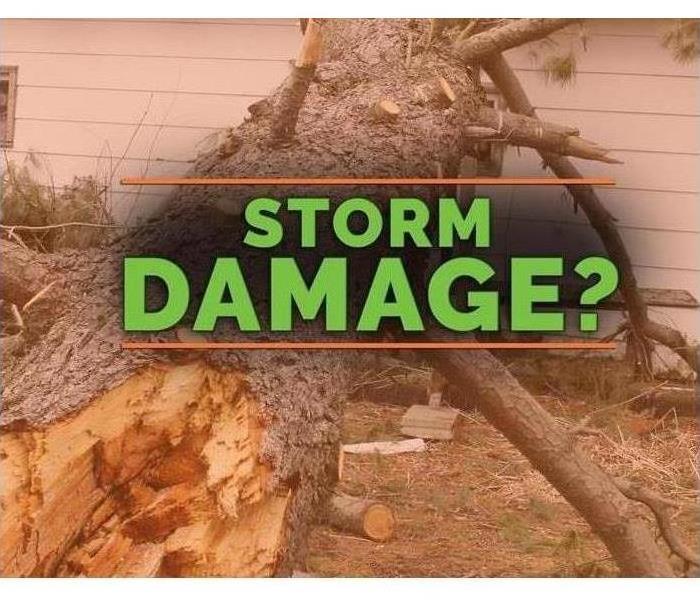SERVPRO Storm Restoration Can Help Salvage Most Of Your Items In Your Home (Part 2 of 2)
12/30/2021 (Permalink)
 Note that ice damage, hurricane damage, roof damage, flood water damage and hail damage all have different methods of water restoration.
Note that ice damage, hurricane damage, roof damage, flood water damage and hail damage all have different methods of water restoration.
Hurricane damage, flood water damage, hail damage, wind damage, ice damage, storm damage and river flooding experts are trained to handle such harsh weather conditions. The water restoration arrive at the scene of the damage immediately. Water restoration efforts must be done promptly so as to prevent further damage. These activities are done after an assessment of the extent of flooding, ground water levels, and the flood water. An assessment is what informs their actions to deal with the storm damage, ground water, and flooding.
It is important to note that ice damage, hurricane damage, roof damage, flood water damage and hail damage all have different methods of water restoration and storm remediation. The team, therefore, needs to come up with the right storm restoration strategy based on the type of damage at hand.
Homeowners need to explain the type of damage so that the home restoration experts can come with the right tools and gear to carry out storm remediation. One such tool is a flood pump. These flood pumps are used to drain water after a flooding or water damage. A flood pump can also work automatically. It can be left in a room to drain the ground water. The pumps are able to handle the ground water even as it rises. Commercial flood pumps are also available to deal with massive flood water situations such as river flooding. In a home application, the flood pumps can be used with vacuums.
Another common issue is frozen pipes, especially after a winter damage. Frozen pipes prevent a free flow of water through the pipes. If the temperatures are still low, it may take time before the frozen pipes unfreeze. It is not advisable to apply heat to the frozen pipes. Handling of these frozen pipes should be left to the storm restoration or home restoration experts.




 24/7 Emergency Service
24/7 Emergency Service